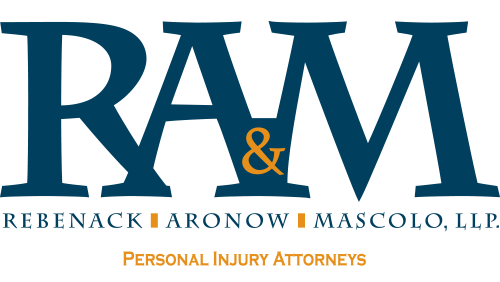What Occurs With the FMCSA Emergency Declaration Expiration in August?
In March, the FMCSA issued a kind of waiver for the standard hours-of-service guidelines for any commercial vehicle drivers who are involved with transporting items pertaining to the COVID-19 pandemic. Keep in mind that trucks transport more than 11 million tons of goods every year, which is why the HOS emergency declaration has been useful for commercial truck drivers. While this emergency declaration has been extended four separate times, the FMCSA emergency declaration expiration is set for the middle of August, which you should be prepared for.
What the Standard Emergency Declaration Entails
The FMCSA made an emergency declaration on March 13 that sought to address the delivery of essential supplies, persons, and equipment throughout the COVID-19 pandemic. The goal of this declaration was to provide a certain amount of relief for truck drivers who are tasked with delivering supplies that are essential for the state and national response to the pandemic. This declaration applies to all 50 states as well as the District of Columbia.
If you’re involved in delivering medical supplies or food, it’s possible that you would be able to obtain an hours-of-service exemption, which ensures that the standard regulations don’t apply to you. If these regulations don’t apply to your deliveries, you’d be able to avoid the regulations without violating federal guidelines. The types of goods and supplies that are covered with this emergency declaration include:
- Medical equipment and supplies pertaining to COVID-19 treatment, testing, or diagnosis
- Equipment and supplies that are needed for community sanitation, safety, and the prevention of COVID-19 transmission
- Food that’s critical for emergency restocking of various types of stores
- Supplies, persons, and equipment that are necessary for the establishment and management of quarantine, isolation, and housing facilities
- Health care professionals who are needed to provide medical services for the COVID-19 response
Keep in mind that routine commercial deliveries aren’t included within this exemption. The emergency declaration sets new guidelines for hours-of-service and the parts and accessories that are needed for your vehicle. On the other hand, relief isn’t granted for weight and size requirements, speed limits, and drug/alcohol regulations. The latest extension of this emergency declaration removed some categories that were previously covered under this exemption. These categories include:
- Paper products and food for emergency restocking
- Fuel
- Raw materials like plastic and paper
- Supplies and equipment that are needed for temporary quarantine and housing
- Liquefied gases for cooling systems and refrigeration units

While these types of deliveries are no longer covered by the extended emergency declaration, this order still applies to livestock feed and livestock, medical equipment and supplies pertaining to the treatment, testing, and diagnosis of COVID-19, and equipment and supplies that are needed for community sanitation, safety, and prevention of transmitting COVID-19. These supplies can include hand sanitizer, masks, soap, gloves, and most disinfectants.
For any driver who falls under these guidelines, they’ll be provided with some relief because of this declaration. While there’s currently no limit to the amount of hours that a person can operate a truck, this order dictates that drivers must be provided with eight hours of off-duty rest after transporting passengers and 10 hours of off-duty rest after completing a delivery of goods.
Another provision states that it’s possible for a driver to return empty to their base after completing relief work for the COVID-19 efforts. Without this exemption in place, you’d be violating federal regulations, which comes with some hefty penalties. While you are operating under this declaration, any accident that you’re involved in must be reported within a period of 24 hours. This report can be sent in writing or by phone to the nearby FMCSA division office. The information that needs to be reported includes vehicle identification, driver name, time, date, location, and a short description of the accident.
What Will Happen With the FMCSA Emergency Declaration Expiration in August?
This emergency declaration has been extended four times since it was introduced in March. However, there’s no guarantee that it will be extended a fifth time, which is why you should be prepared for what occurs when the declaration expires in August. The main provisions that are available to drivers with this emergency declaration can be found within the Code of Federal Regulations. If you navigate to Title 40, the regulations that are listed within parts 390-399 don’t apply to drivers who are exempt while assisting in COVID-19 relief efforts.
It’s important to understand that the current extension of the HOS emergency declaration will officially expire on August 14. If this takes place when scheduled, the delivery of supplies, equipment, and persons related to the COVID-19 relief efforts will no longer be covered by the current exemption, which means that the standard guidelines for hours-of-service and any other rules within Parts 390-399 of Title 40 will apply to you.
Make sure that you adhere to these guidelines immediately after August 14. If you don’t, it’s possible that you’ll be in violation of federal regulations. In the event that you’re found to be in violation of these regulations, consider requesting legal assistance from a trucking accident lawyer like ours to help you navigate this situation.
When to Seek Help From a New Jersey Trucking Accident Lawyer
Whether you make deliveries for COVID-19 relief efforts or are involved in standard commercial deliveries, there’s always a possibility that you could get into an accident, which can occur for any number of reasons. These accidents can be caused by an array of factors that include fatigue, traffic flow problems, brake issues, and roadway problems. No matter the reason for the accident, it’s important to understand that trucks are large vehicles that can lead to extensive damage and significant injuries when an accident takes place.
If you’re involved in a trucking accident, it’s highly recommended that you seek assistance from a trucking accident lawyer like ours who has experience with this type of case. There are numerous reasons why a lawyer may be needed for your case. For one, our lawyers can help to arrange your medical bills to ensure that all bills are organized and maintained. We can also help you understand the complex legal process as well as the rights that you have during this process. Trucking accidents tend to cause frayed nerves, which is why nearly every element of the case will be handled by our attorneys at Rebenack Aronow & Mascolo, L.L.P.
Throughout the legal process, our attorneys can manage property damage claims, interact with any insurance companies involved with the case, investigate the accident scene, build a strong case, negotiate settlements, and represent the case in court if necessary. With reputable legal representation, there will invariably be many hurdles to navigate throughout the legal process.
Now that you know when the extended FMCSA emergency declaration expiration is set to occur and what will happen when it does, you should be prepared for this eventuality. While there’s always a possibility that another extension occurs, you shouldn’t count on it, which only serves to keep you unprepared for the changes that take place after August 14. If you’re ever involved in a truck accident and require representation for your injuries or any damage that has resulted from the accident, get in touch with our New Jersey trucking accident lawyer immediately at (732) 394-1549 to schedule a consultation.


